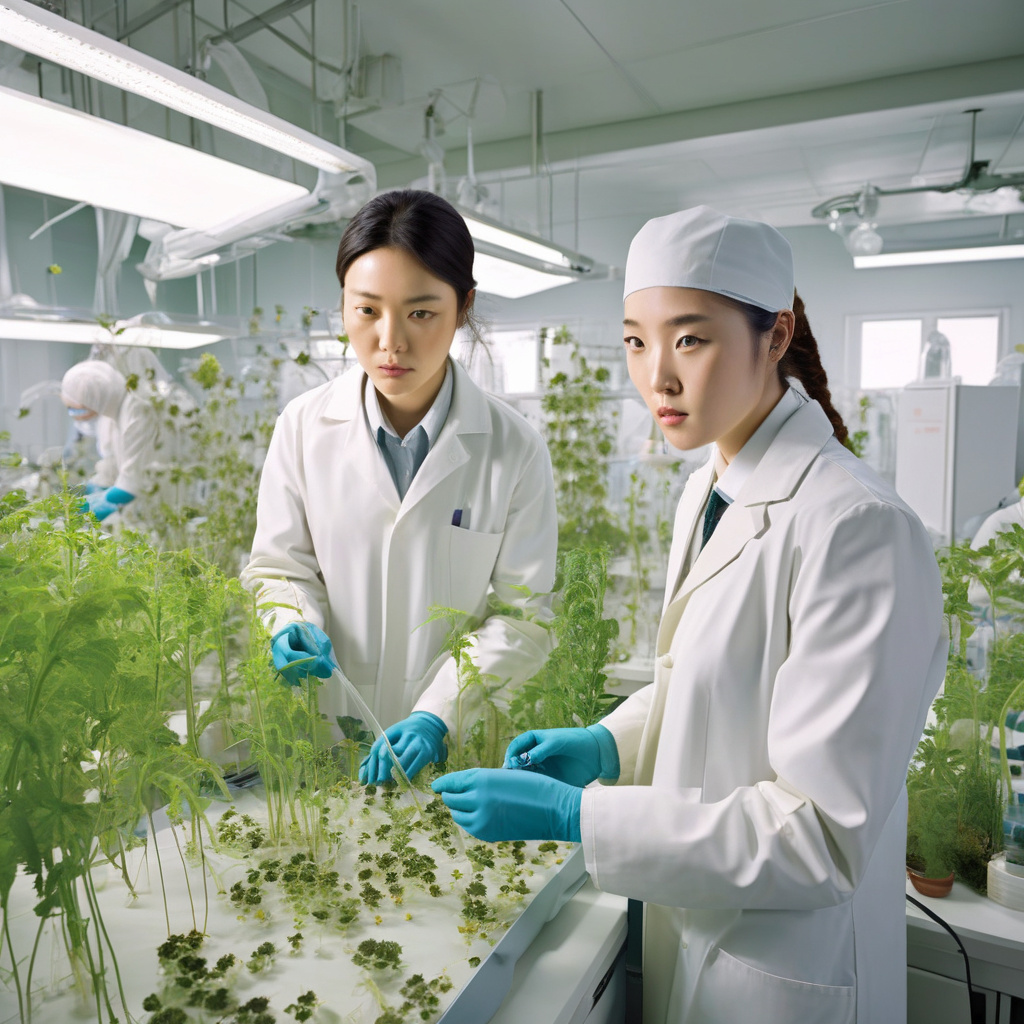Weeds Turned into Eco-Plastic: Korean Researchers Create Nylon-Like Polymer from Waste
Researchers in South Korea have successfully engineered a bio-based plastic using microorganisms as a sustainable solution to combat plastic pollution. This innovative approach involves utilizing common weeds and converting them into a nylon-like polymer, offering a promising alternative to traditional plastic production methods.
The detrimental impact of plastic waste on the environment has spurred a global quest for eco-friendly alternatives. Traditional plastics, derived from fossil fuels, have long been associated with pollution, greenhouse gas emissions, and non-biodegradability. In response to these challenges, researchers have been exploring new avenues to develop sustainable materials that can mimic the properties of conventional plastics without harming the planet.
The team of Korean researchers took a significant step towards addressing this issue by harnessing the power of microorganisms to transform weeds into a valuable resource. By fermenting the weeds with specific microorganisms, they were able to extract a biopolymer that closely resembles nylon, a versatile plastic commonly used in various industries.
What makes this discovery truly groundbreaking is its potential to revolutionize the plastic manufacturing process. Unlike traditional plastics that rely on finite fossil fuel sources, this bio-based plastic offers a renewable and sustainable alternative. By utilizing weeds, which are abundant and often considered invasive species, the researchers have not only found a way to reduce waste but also to repurpose it into a valuable material.
The eco-plastic derived from weeds exhibits similar properties to nylon, including flexibility, durability, and heat resistance. This makes it suitable for a wide range of applications, from packaging and textiles to automotive parts and electronics. By offering a viable substitute for conventional plastics, this innovation has the potential to drive significant change in the industry and pave the way for a more sustainable future.
Beyond its environmental benefits, the weed-based eco-plastic also presents economic opportunities. With the growing demand for sustainable materials, industries are increasingly seeking alternatives to traditional plastics. By commercializing this technology, Korean researchers could not only reduce the reliance on fossil fuels but also create new revenue streams and job opportunities in the bio-based plastic sector.
In a world where the environmental impact of plastic pollution is becoming increasingly apparent, initiatives like the one undertaken by Korean researchers offer hope for a greener tomorrow. By turning weeds into eco-plastic, they have demonstrated the power of innovation and sustainability in tackling complex global challenges. As we continue to seek ways to reduce our ecological footprint, this bio-based plastic serves as a shining example of how nature-inspired solutions can lead to a more sustainable and harmonious coexistence with the planet.
In conclusion, the transformation of weeds into eco-plastic by Korean researchers marks a significant milestone in the quest for sustainable materials. By harnessing the potential of microorganisms and repurposing invasive species, they have created a bio-based plastic that not only mirrors the properties of traditional plastics but also offers a renewable and environmentally friendly alternative. As we strive to combat plastic pollution and embrace a more sustainable future, initiatives like this serve as a beacon of hope and inspiration for a world in need of innovative solutions.
plastic, eco-friendly, innovation, sustainability, KoreanResearchers











